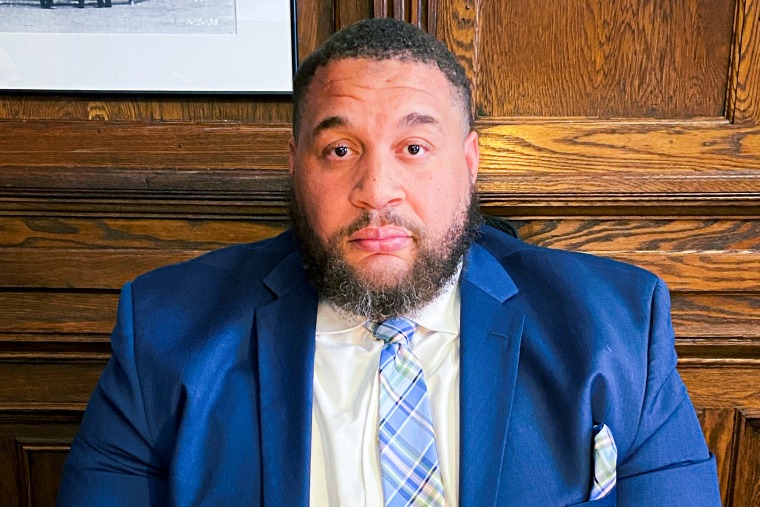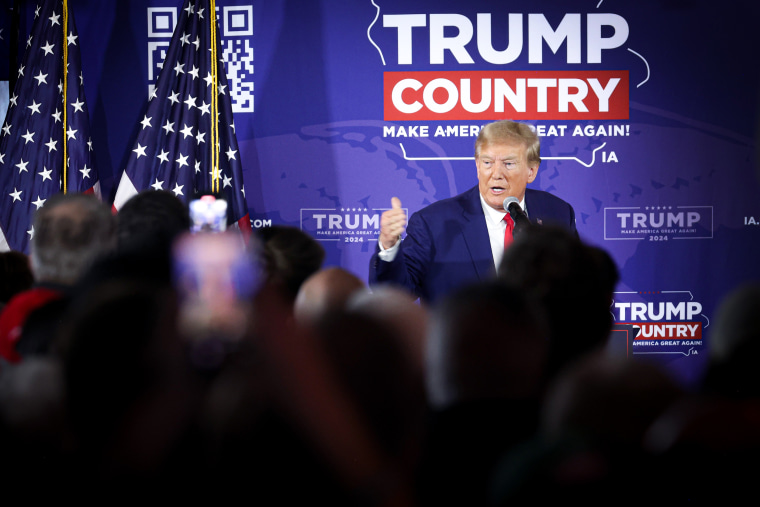Local election officials say the Biden administration needs to do more to keep them safe

Local election officials want help from the Biden administration to fight disinformation about voting. So far help has been scarce.
Fear of interfering with free speech has hindered the government’s effort to squelch false rumors, some of them spread by Donald Trump. Meanwhile, local election officials receive constant threats.
Election officials across the country are calling on the Biden administration to do more to keep them safe ahead of the November presidential election, but Biden administration officials say their ability to combat disinformation around elections is often hampered by free speech considerations.
Across the country, disinformation spread online and by former President Donald Trump has prompted threats to the safety of election officials and forced many to look for new work. In South Carolina, for example, 70 percent of election directors have left the job since the 2020 election. Election officials in Washington state say they have been sent fentanyl in the mail. And in Philadelphia, city commissioners, who run elections, have received threats every year since the 2020 election.

Most recently, Chairman Omar Sabir received an email from someone telling him that there will be unidentified monitors at Philadelphia’s election centers making sure everyone is legally allowed to vote.
“We have insiders that will be snitching this time around and violators will be sent to federal prison,” the email said.
In 2020, city officials received a phone call from a person who said “corrupt Democrats and election officials who support Black Lives Matter and engage in voter fraud” will “learn first-hand the hard way why the Second Amendment exists. We are 1000 steps ahead of you mother***ers and you are walking right into the line.”
A 2023 poll from the Brennan Center for Justice found more than 85 percent of local election officials said they would like to see the Department of Homeland Security’s Cybersecurity and Infrastructure Security Agency (CISA), which is responsible for advising the local officials on election security, do more to dispel disinformation around elections.
Some of the disinformation has been spread by former President Trump.
Speaking in Iowa in December, Trump told his supporters, “The most important part, what’s coming up is to guard the vote. And you should go into Detroit and you should go into Philadelphia and you should go into some of these places, Atlanta,” he said. “And we got to watch those votes when they come in, when they’ve been, you know, shoved around in wheelbarrows and dumped on the floor and everyone saying, ‘What’s going on?’”

The Biden administration did not take action to respond to Trump’s unsubstantiated claim that votes were being dumped from wheelbarrows.
A senior Justice Department official explained that the FBI’s response to disinformation around voting is “very situational.”
“It really depends on what type of disinformation or election threat we are talking about and whether it’s a federal crime,” the official said.
In an interview with NBC News on Thursday, Homeland Security Secretary Alejandro Mayorkas said DHS is working “very closely” with election officials and law enforcement to “ensure the integrity of the election process and ensure the physical safety of election workers.”
“To make sure that this fundamental cornerstone of our democracy precedes as it needs with integrity, safety and security,” Mayorkas said.
CISA also provides rebuttals to disinformation about elections on its Rumor vs. Reality web site.
CISA senior adviser Cait Conley said, “CISA works closely with the Office of the Director of National Intelligence and FBI to share information on foreign adversary tactics and provide guidance on mitigation measures to protect election infrastructure, including ways to address the risks to election infrastructure from generative AI.”
But election security experts say the Biden administration is actually doing less to combat disinformation than the Trump administration did, particularly when it comes to alerting social media companies.
“There’s no question that there has been a pullback particularly in the last year or so from federal agencies, both communicating with social media companies in terms of what they are seeing around foreign interference and elections,” said Lawrence Norden, senior director of the Elections & Government Program at the Brennan Center. “And, more generally over the past couple of years, unfortunately, even pushing back against election rumors and misinformation.”
A large reason for that, says Norden, is a Missouri federal judge’s ruling last year that derailed the U.S. government’s approach to combatting disinformation online.
The judge ruled that DHS and other agencies had violated the First Amendment by intimidating social media platforms. Although the ruling was put on hold pending appeal, the Biden administration stopped briefing Meta, Google and other companies on foreign disinformation, as NBC News has reported. The FBI recently resumed some outreach to companies, and a majority of Supreme Court justices appeared skeptical of the notion that the government can’t flag disinformation on social media. But many experts say the court battle has made it harder for U.S. officials to tackle disinformation.
There is some movement within the Biden administration to do more, two people familiar with recent discussions told NBC News.
In addition, the Senate Intelligence Committee received a classified briefing on election security, but “people did not walk out of there feeling like they knew who was in charge,” said a person familiar with the briefing.
Federal officials said they would let local officials take the lead, an answer that did not satisfy senators, the source said.







